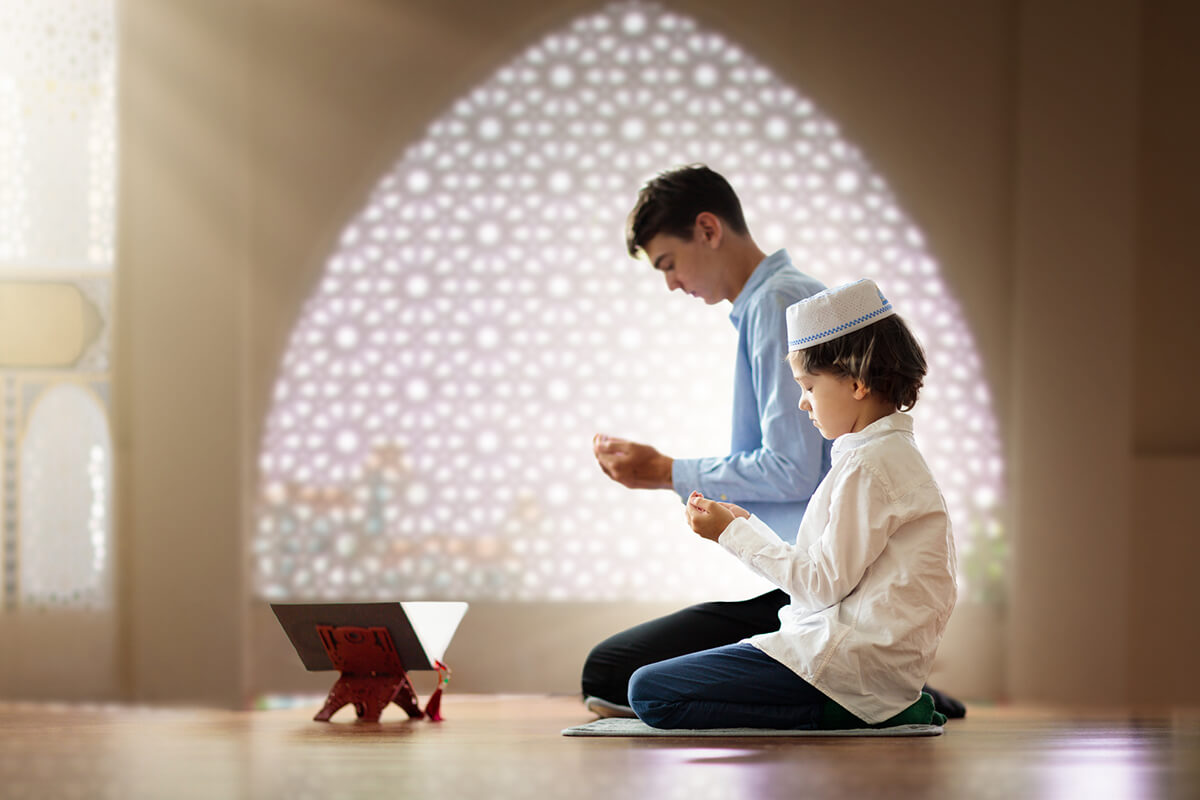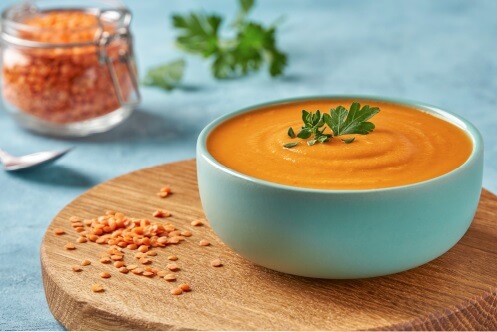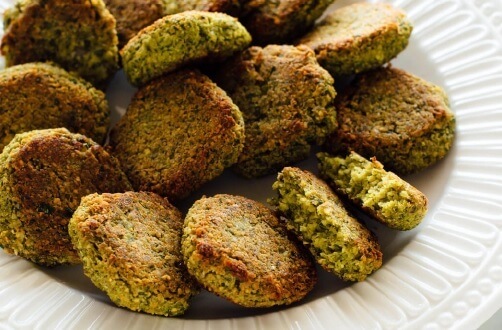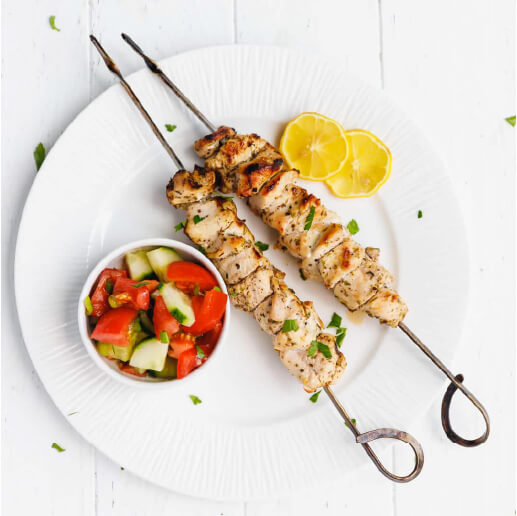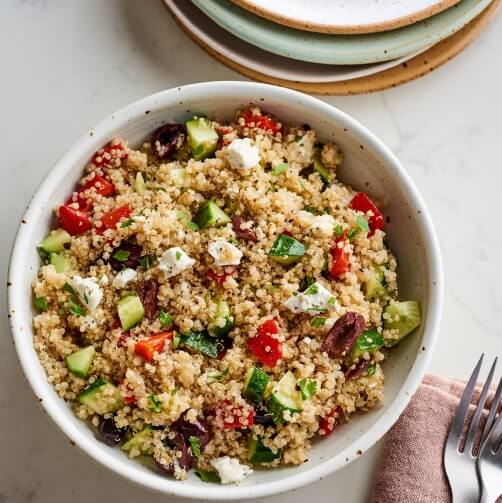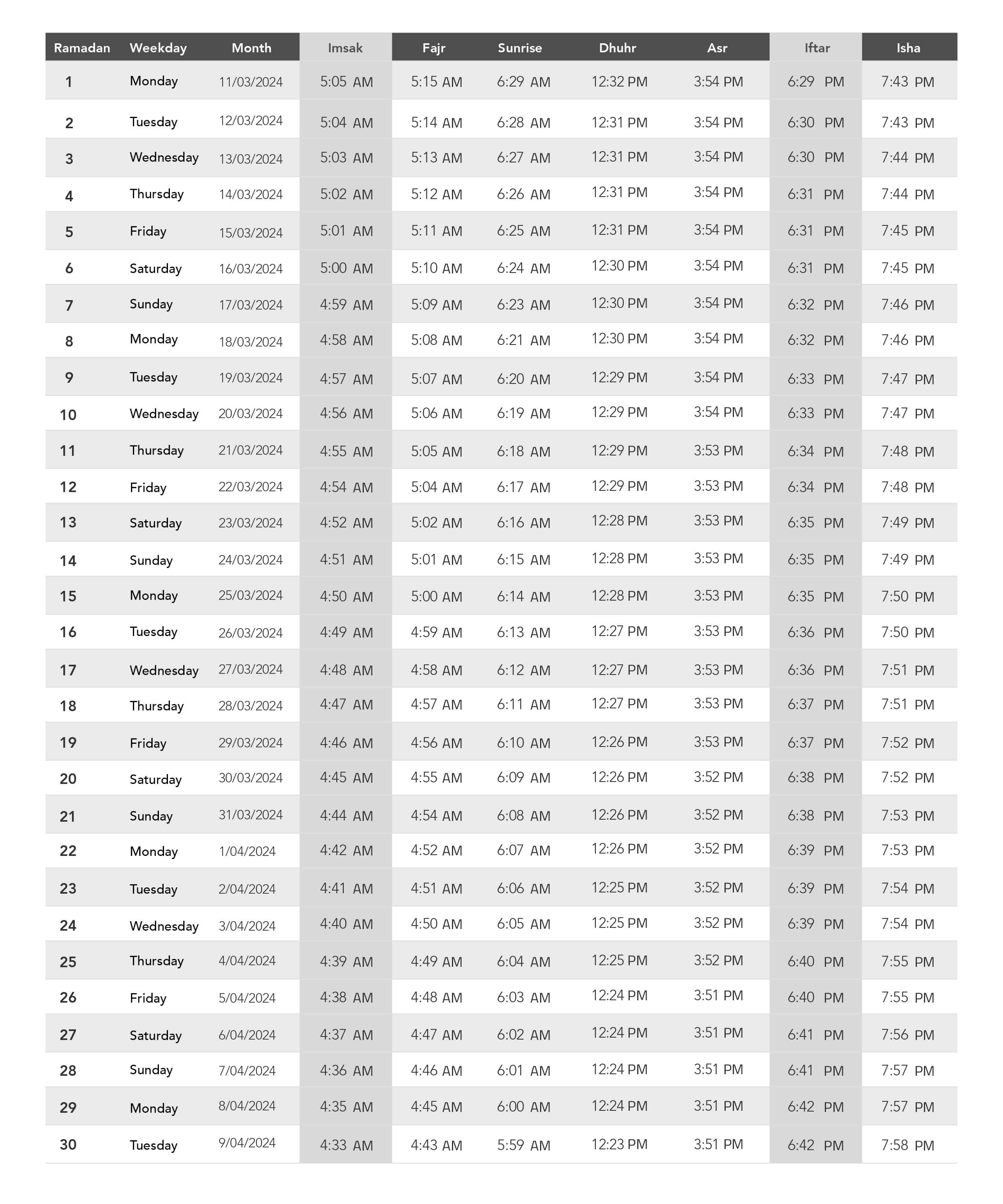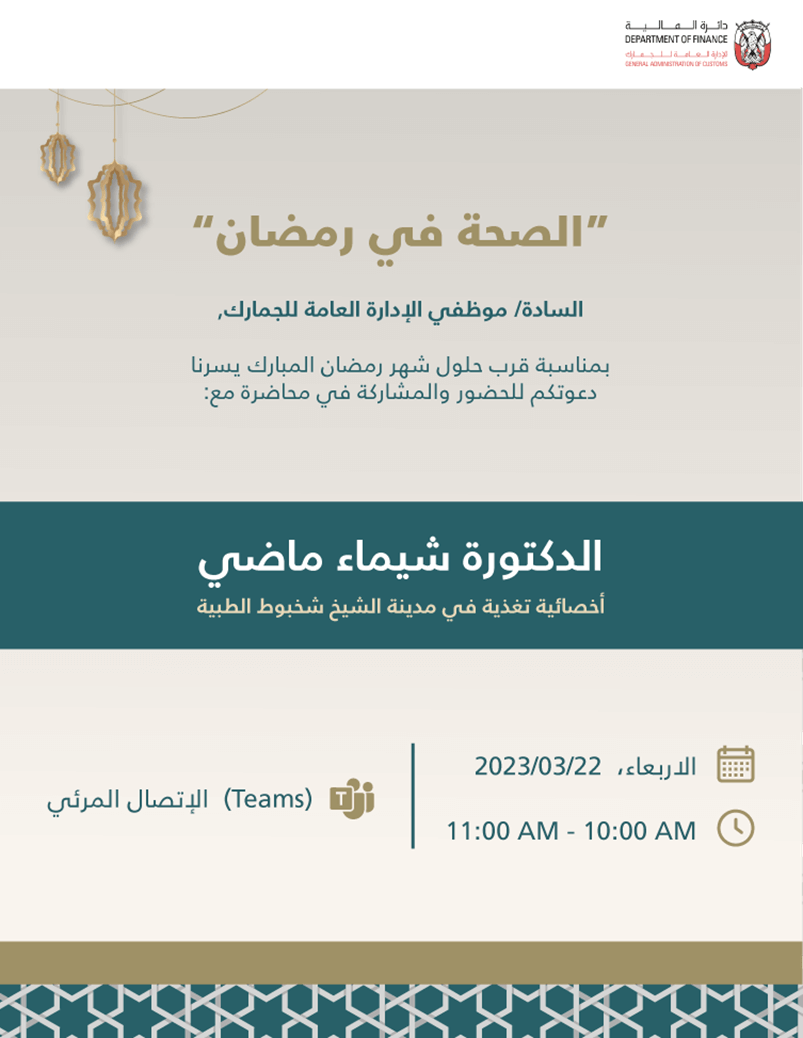Join us for a fun-filled evening jam-packed with activities designed to boost your health and happiness.
-
Event details
- Date: Friday, March 1, 2024
- Time: 5 to 9:30 p.m.
- Location: SSMC's booth will be located in the Sheikh Zayed Festival's Chinatown area facing the Uzbekistan pavilion.
-
Exclusive giveaway bags
We will distribute thoughtfully crafted complimentary giveaway bags as a token of appreciation for your presence.
-
SSMC booth activation
5 p.m. Our expert nutritionist and physiotherapist will provide valuable insights and guidance on maintaining a healthy lifestyle during Ramadan.
-
Steps challenge
As we embrace the spirit of Ramadan, let's kickstart our journey towards better health and wellness with a fun step challenge. Compete for top prizes by accumulating the highest number of steps within a specified time frame. Registrations will be open onsite at our booth at the Sheikh Zayed Festival.
Participation is easy, and the benefits are immense! Here’s how it works:
- Simply download a health or step counter/tracker app on your phone if you haven’t already.
- Register for the challenge at our booth at the Sheikh Zayed Festival on March 1. The booth is located in the Chinatown area next to the Children’s Theatre and facing the Uzbekistan pavilion. Registration opens at 6:30 p.m. and closes at 7:30 p.m.
- Track your steps throughout the challenge period using the app. The steps challenge period is from 6:30 until 8:30 p.m. The earlier you register during the registration period, the more time you have to collect steps, and the higher your chances of winning.
- At the end of the challenge at 8:30 p.m., head to the SSMC booth. Organizers will tally your steps and compare them to your starting count.
- The top 10 steps challenge winners with the highest steps count will be announced at Sheikh Zayed Festival’s Children’s Theater at 9 p.m. Prizes include mall vouchers worth up to AED 1,500.
-
Timings
- 6:30 p.m. Registration opens at the SSMC booth at Sheikh Zayed Festival
- 7:30 p.m. Registration closes
- 9 p.m. Winners announced at the Children’s Theatre
-
Prizes
-
-
Yoga session for kids
5:50 p.m. We will have a special yoga session tailored for kids, lasting 30 minutes under the guidance of our experienced instructors. The session will be held at the Children’s Theatre at Sheikh Zayed Festival.
 Ramadan
operating hours
Ramadan
operating hours
Physician-led Clinics
Day Clinics
Monday to Thursday: 9 a.m. - 3 p.m.
Friday: 8 a.m. - 1 p.m.
Evening Clinics
Mondays and Wednesdays:
8:30 p.m. - 12:30 a.m.
- ENT
- X-ray service
- Gastroenterology
- Internal medicine
Dietetics
Day Clinics
Monday to Thursday: 9 a.m. - 3 p.m.
Friday: 8 a.m. - 1 p.m.
Evening Clinics
Mondays and Wednesdays:
8:30 p.m. - 12:30 a.m.
Dressing and Injection Clinics
Monday to Sunday: 9 a.m. - 3
p.m.
Location: Tower A, Level 4
Apheresis Unit
Monday to Thursday: 8 a.m. - 4
p.m.
Friday: 8 a.m. - 3 p.m.
Phlebotomy
Day Clinics
Monday to Thursday: 9 a.m. - 3 p.m.
Friday: 8 a.m. - 1 p.m.
Evening Clinics
Mondays and Wednesdays: 8:30 p.m. - 12:30 a.m.
Pharmacy
Outpatient Pharmacy
Location: SSMC Clinic Building
Monday to Thursday: 9 a.m. - 4
p.m.
Friday: 8 a.m. - 2 p.m.
Saturday/Sunday: Closed
Location: Tower Pharmacy in Tower B, Ground Floor
Timings: Open 24/7
 Ramadan inpatient visiting hours
Ramadan inpatient visiting hours
General Inpatient Units
Morning slot: 10 a.m. - 2 p.m.
Evening slot: 6 p.m. - 12 a.m.
Critical Care Areas
Morning slot: 12 p.m. - 2 p.m.
Evening slot: 6 p.m. - 12 a.m.
Neonatal Intensive Care Unit
Parents only: 24 hours/day
Pediatric Intensive Care Unit
Parents only: 24 hours/day
Other Visitors
Morning slot: 12 p.m. – 2 p.m.
Evening slot: 6 p.m. - 12 a.m.
Labor Rooms - Operation Theaters / Emergency Department
Spouse or parents only (maximum two visitors at a time): 24 hours/day
*Please note: These operating hours will be effective from March 8 onwards to accommodate the observance of Ramadan.
Health Tips During Ramadan
To maximize your well-being during this sacred time, our experts have shared some health tips as we enter this holy month.
Stay hydrated
Drink plenty of water and fluids between iftar and suhoor to avoid dehydration; also avoid caffeinated drinks as they can dehydrate you.
Eat a balanced diet
Choose foods that provide sustained energy, such as complex carbohydrates and protein. Avoid fried or fatty foods, as they can cause indigestion and weight gain.
Avoid overeating
Overeating during iftar and suhoor can lead to indigestion, bloating and weight gain. Eat slowly and in moderation.
Get enough sleep
Sleep is essential for good health, so make sure to get enough rest between iftar and suhoor.
Exercise regularly
Light exercise, such as walking or stretching, can help maintain your energy levels and improve your overall health.
Monitor your blood sugar levels
If you have diabetes, monitor your blood sugar levels regularly, and consult your healthcare provider for any adjustments to your medication or diet.
Avoid skipping the pre-dawn meal (Suhoor)
It's important to eat a nutritious meal before starting your fast to help sustain your energy throughout the day.
Take care of your mental health
Ramadan is a time of spiritual reflection – practice self-care, such as meditation or deep breathing, to reduce stress and anxiety.
Connect with others
Use Ramadan as an opportunity to connect with family, friends and your community.

Fast your way to a healthier you: Accelerate your weight loss during Ramadan
March 18, 2024 Read More
Coping with heartburn and acid reflux while fasting: Ramadan Edition
March 22, 2024 Read More
How to have a sugar-free Ramadan: Expert tips
March 25, 2024 Read More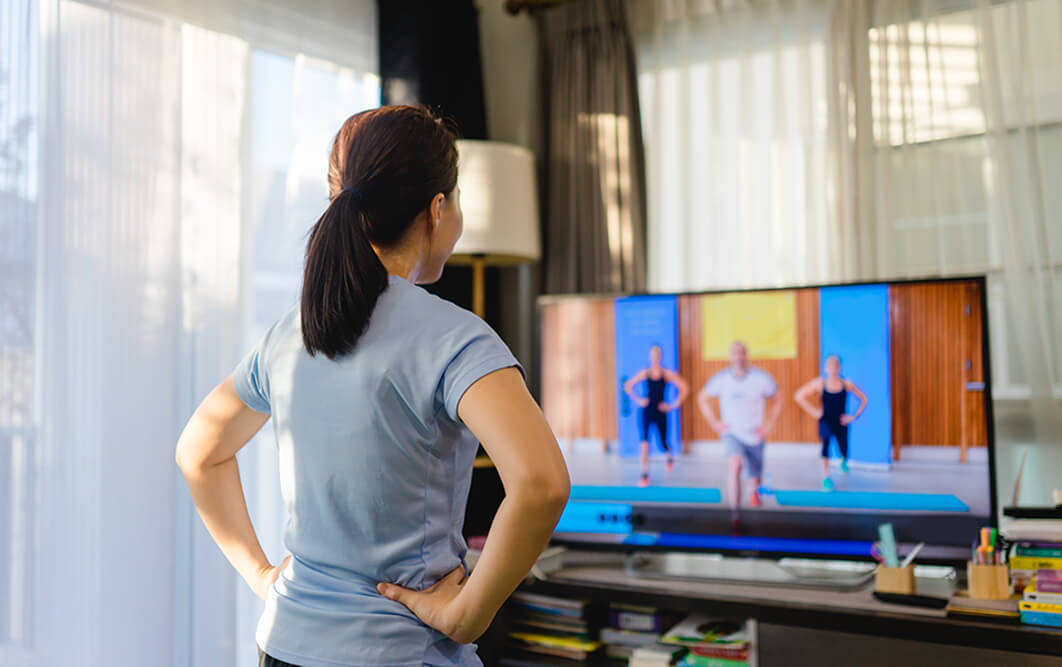
How to have an active Ramadan: Expert tips
March 29, 2024 Read MoreAre your physicians available during fasting hours?
Do you have praying and ablution facilities?
Can I visit hospitalized family members during Ramadan?
General inpatient units
10 a.m. - 2 p.m.
6 p.m. - 12 a.m.
Critical care areas
12 p.m. - 2 p.m.
6 p.m. - 12 p.m.
Burn intensive care unit
10 a.m. - 2 p.m.
6 p.m. - 10 p.m.
Pediatric intensive care unit
24 hours/day (parents only)
Other visitors
12 a.m. - 2 p.m.
6 p.m. - 12 a.m.
Neonatal intensive care unit
24 hours/day (parents only)
Labor rooms - operation theaters / emergency department
Spouse or parents only (maximum two visitors at a time): 24 hours/day
Is your pharmacy open around the clock?
Do you deliver medications to patients' homes during Ramadan?
Do you offer online appointments during Ramadan?
Do you offer iftar to fasting inpatients?
